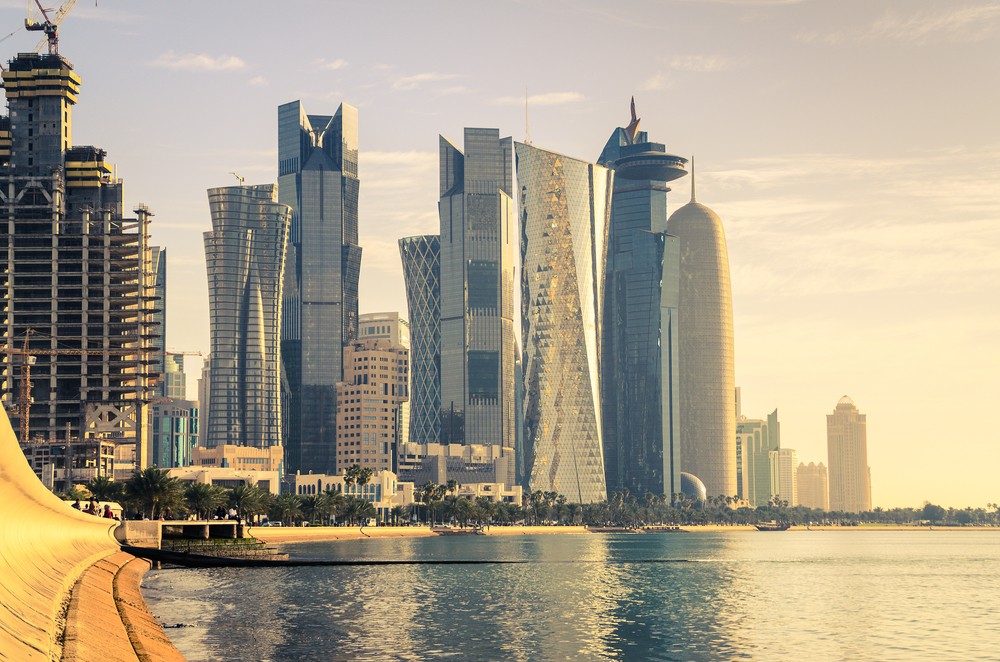Popular Reads
Top Results
Can't find what you're looking for?
View all search resultsPopular Reads
Top Results
Can't find what you're looking for?
View all search resultsHow embargo affects Qatar investment in Indonesia
Qatar has a large amount of investments abroad including Indonesia. How will the embargo affect its Indonesia’s investments if it lasts for a long time?
Change text size
Gift Premium Articles
to Anyone
T
he current crisis in the Middle East following the cut in diplomatic relations between Qatar and Arab countries including Saudi Arabia, Egypt, Bahrain, Yemen, United Arab Emirates, Libya and even the Maldives have become the talks of the world leaders.
The nine countries accused Qatar of assisting terrorist organization and having too close relations with Iran.
The embargo imposed on Qatar has raised concerns about the country's economic condition and its impact on other countries. Qatar is a small but rich country, which according to IMF data, is the richest country in the world with per capita income of US$146,000, a quite high compared to Indonesia’s per capita income which is only $10,700.
As a wealthy country, Qatar has a large amount of investments abroad including Indonesia. How will the embargo affect its Indonesia’s investments if it lasts for a long time?
This article will discuss the impact on Qatar's investment and the financial system stability in Indonesia, such as in financial institutions and, corporations and Indonesia’s migrant workers.
Starting from a financial institution, especially in banking. Qatar through its state-owned Qatar National Bank (QNB) controls a 82.59 percent stake in Bank QNB Indonesia. The acquisition was made in 2011.
Based on the published 2016 Annual Report, through bank grouping based on core capital, (Commercial Bank Bussiness Group - BUKU), QNB Indonesia is in the BUKU 2 group. It means with such a capital category, QNB Indonesia is not allowed to have foreign capital participation exposure i.e. can only operate in Indonesia even though the bank can conduct business activities in rupiah and foreign currency.
The growth of QNB Indonesia's assets after being acquired by QNB was significant and even received an idAA rating with Stable" outlook from Pefindo. The share of credit owned by QNB Indonesia is still small at around 1 percent; this is also in line with its share of third party fund.
While regarding its interdependence with other banks, QNB Indonesia is quite active in the interbank money market and the majority of the role as the borrower. Although, the nominal is not too significant because the bank's capital is quite good.
Furthermore, from the corporate aspect, Qatar is investing in one of Indonesia's largest cellular providers. Qatar telecommunication company Ooredoo (formerly Qatar Telcom) is a majority shareholder of Indosat, with a 65 percent stake. The Indonesian government has a 14.3 percent stake and the public holding the remaining 20.7 percent). Based on the 2016 Financial Statements, Indosat, now called Indosat Ooredo, has short-term liabilities to banks around Rp 6 trillion, while long-term debt is around Rp 12.4 trillion. However, the ratio of debt to capital (DER) remains stable to 1.67 percent, meaning that so far the company has no problem in paying all its obligations.
Also, the ratio of capital returned to the owner of the parent is also small that is equal to 8.3 percent. So, this numbers means that the owner of the fund does want the sustainability of the company's business in the long run, not for short-term purposes only.
How the crisis will affect Indonesian migrant workers. According to the data of the Agency for the Placement and Protection of Indonesian Migrant Workers (BNP2TKI), in 2016 there are 1,355 Indonesian workers in Qatar. The number declined from 16,616 people in 2011. Remittances from migrant workers in Qatar in 2016 amounted to US$74.7 million. Compared to other Middle Eastern countries, the numbers is only below those in Saudi Arabia, UAE, and Jordan. Foreign exchanges earned by migrant workers in Qatar have contributed substantially to the Indonesian financial system.
Reflecting on the data and facts, the embargo experienced by Qatar may not be too significant in influencing the stability of Indonesia's financial system. However, it remains to be wary of considering that if the problems facing Qatar continues, Indonesia could lose the potential for greater investment in the future.
Furthermore, if tensions in the Middle East continue to escalate may cause countries with economic relations with Qatar to be ostracized by Saudi Arabia, and other colleague's countries and this absolutely will bring significant impact on Indonesian financial system stability. Let's hope it does not happen.
---------------
We are looking for information, opinions, and in-depth analysis from experts or scholars in a variety of fields. We choose articles based on facts or opinions about general news, as well as quality analysis and commentary about Indonesia or international events. Send your piece to academia@jakpost.com. For more information click here.










